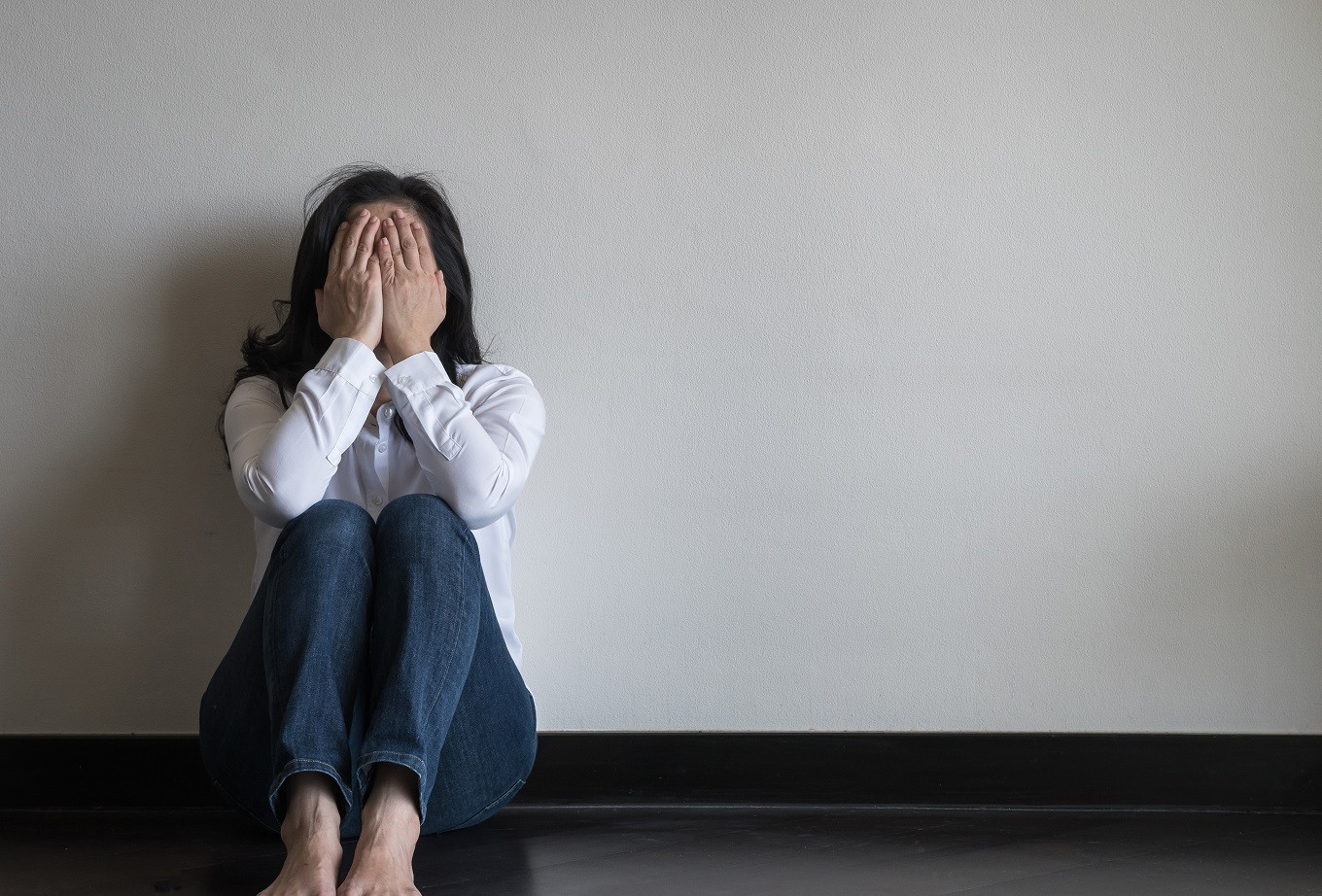Popular Reads
Top Results
Can't find what you're looking for?
View all search resultsPopular Reads
Top Results
Can't find what you're looking for?
View all search resultsSeven months on, health crisis continues to take a toll on mental health
Data from the Indonesian Psychiatrists Association (PDSKJI) shows that as of October, 5,661 people across the country have taken mental health screening self-tests on its website. It says that about 68 percent of test-takers faced real psychological concerns.
Change text size
Gift Premium Articles
to Anyone
Fear of losing jobs.
Cabin fever and inability to focus while working from home.
Limited interaction with friends and families.
Unable to afford daily needs.
For the past seven months, the outbreak has changed the lives of many Indonesians.
All these uncertainties have been an added psychological burden, especially on young adults, a recent study published by the Indonesian Psychiatrists Association (PDSKJI) has shown.
Gladhys Elliona, 26, a writer and a postgraduate student from Yogyakarta, said she had been seeing a psychiatrist for a year now. She was diagnosed with generalized anxiety disorder, which is characterized by excessive worry about things in life. She said before the COVID-19 pandemic, she did not have to wait long to see her psychiatrist.
“I visit my psychiatrist once a month. Back then, there were less than 10 people waiting to see the psychiatrist. Now, during the pandemic, the line has gotten longer —20 to 30 people are there, waiting,” she said. “And more young people are there."
Prameswari, 23, not her real name, a Malang resident in East Java who juggles a job at a local human rights foundation and several side jobs, said she often struggled with anxiety, especially when dealing with heavy workloads. But she had no other option in making ends meet. She mostly sleeps it off, sometimes all weekend, to ease her mind.
Like many Indonesians, Prameswari never sought help from mental health professionals even though she felt her anxiety growing in the first months of the pandemic. She often found herself bursting into tears.
Read also: Reaching out, resilience, key to tackling mental health problems during pandemic
One day, her husband had to take her to the hospital because she felt intense chest pains.
“The doctor said I was showing symptoms of a heart [problem] that needed to be treated immediately. He said it was psychosomatic, so he referred me to a psychologist,” she said.
The first visit with a psychologist was a big help for Prameswari. She has since twice met the psychologist and felt that the sessions helped her understand her anxiety better.
But Prameswari doubts whether she can continue the consultations when she and her husband are financially struggling. Her husband, a freelance writer, turned to farming on a small piece of rented farmland months ago after finding freelance jobs drying up due to the pandemic.
“Honestly, they [the sessions] are very expensive. My salary isn’t great. I can’t even save money […] My work contract with the foundation is going to end [in November]. I often took sick days so I don’t know whether they will extend my contract or not,” Prameswari said.
Read also: More mental health workers needed to address effects of COVID-19
According to government data, as of May, 3 million Indonesians have been either jobless or unable to work as a result of the pandemic, which has brought the economy to a virtual standstill. With a possible recession on the horizon, the government has projected 5 million job losses this year.
Prameswari's story illustrates serious mental health problems among Indonesian young adults during the outbreak. Data from the PDSKJI shows that as of October, 5,661 people across the country have taken mental health screening self-tests on its website. It says that about 68 percent of test-takers faced real psychological issues.
It also shows that young adults under 20 complain the most about anxiety issues, followed by people aged 20 to 29. Suicidal thoughts are also most common among youngsters aged 18 to 29.
“We have 74 percent of test-takers showing symptoms of psychological trauma. These symptoms are mostly found among those under 30 years old. Their most frequent complaints are constant anxiety and feeling alone and isolated,” PDSKJI head Diah Setia Utami said in a recent public discussion.
Read also: Mental health services disrupted in 93% of countries during COVID-19 pandemic: WHO
Such constant anxiety has been among the many uneasy feelings felt by Elma Aldisya, a 24-year-old reporter at a news portal in Jakarta, since the pandemic hit.
She said working from home for months and attending many press conferences only through online platforms were overwhelming. She said she could not finish her work, experienced breakdowns and tried to harm herself many times.
"I was in denial at first. I compared mine to other people’s struggles. But then I realized that my feelings are also valid," Elma said.
She has visited a psychologist and a psychiatrist.
"It turned out that writing has become one of the stressors [of my depression]," she said.
She considered herself lucky because when her supervisors found out about her condition, they offered her a temporary break from writing articles and transferred her to the company’s social media team.
“Employers, especially those in the news industry, have to see their employees as an asset and take care of them,” Elma said.
The Journalism and the Pandemic Project published in October the first part of a global survey that showed mental health problems had developed among journalists during the pandemic’s first wave, especially those who covered COVID-19-related news.
The survey found that 70 percent of the total 1,406 respondents rated the psychological and emotional impacts of dealing with the COVID-19 crisis as the most difficult aspects of their work.
"Sixty-seven percent of respondents identified concerns about financial hardships as a significant difficulty, while the intense workload was ranked the third-biggest challenge, ahead of social isolation and the risk of actually contracting the virus," the report said.










